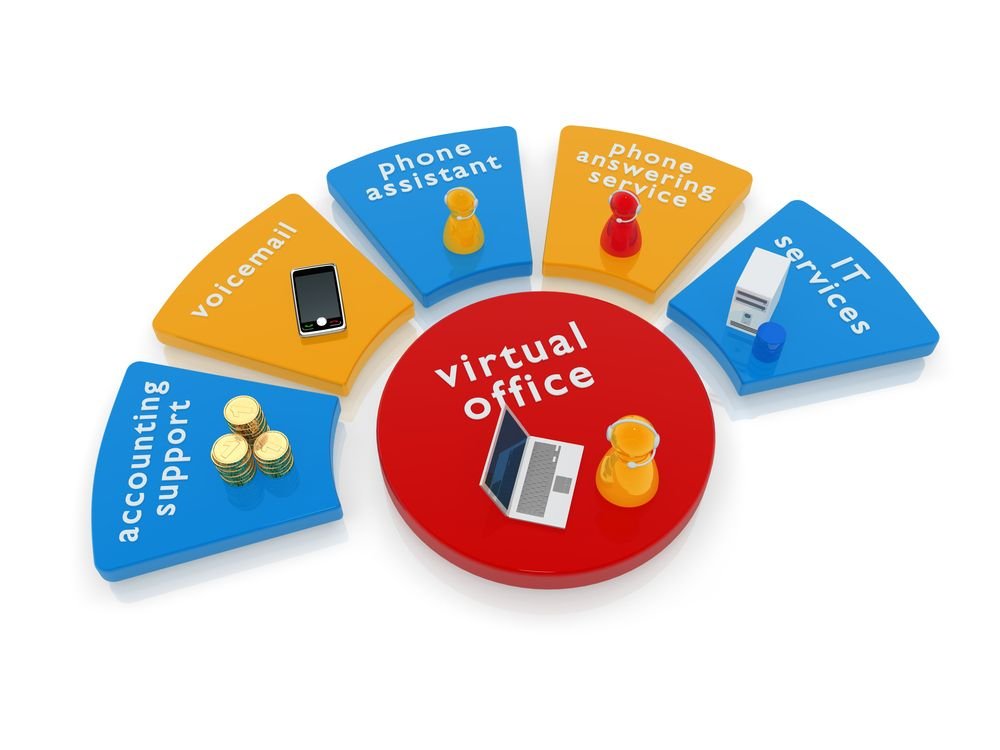In today’s business world, entrepreneurs have more choices than ever before. Owning a physical office is no longer a necessity, thanks to digital alternatives that offer similar benefits at lower costs and with greater flexibility. However, some businesses still rely on traditional offices to maintain professionalism and facilitate direct team collaboration.
Global companies like Google and Apple invest in high-end office spaces to foster creativity and teamwork, while fully remote companies like Zapier and Buffer operate successfully without a physical presence. But how do you decide which model suits your business best?
This article will help you understand the differences between physical offices and virtual offices and guide you in choosing the best option for your needs.
What is a Physical Office?

A physical office is a traditional workspace where employees work from a designated location, such as an office building or leased space. It provides a structured environment with essential facilities, including desks, meeting rooms, high-speed internet, and administrative services.
Key Advantages of a Physical Office:
- Professional Work Environment – A dedicated space designed to enhance productivity.
- Instant Communication – Facilitates real-time collaboration and teamwork.
- Credibility & Trust – Strengthens a company’s reputation with clients and partners.
- Comprehensive Facilities – Access to meeting rooms, office infrastructure, and on-site services.
What is a Virtual Office?

A virtual office is a flexible solution that provides a professional business address without requiring a physical workspace. It allows businesses to register a commercial address, obtain legal documentation like a trade license, and benefit from administrative services such as mail handling and call answering—all without renting a traditional office.
Key Benefits of a Virtual Office:
- Full Flexibility – Work from anywhere without being tied to a specific location.
- Professional Services – Includes mail handling, call management, and optional meeting rooms.
- Cost-Effective – Eliminates high rental costs and operational expenses.
- Scalability – Expand your business to new locations at minimal cost.
Why Choose a Virtual Office?
A virtual office is ideal for businesses that prioritize flexibility, cost savings, and a global presence. Here’s why it might be the right choice for you:
✔ Lower Overhead Costs – Reduce expenses compared to traditional office rentals.
✔ Remote Work Advantage – Perfect for startups and digital businesses that thrive in flexible environments.
✔ Global Talent Access – Hire top professionals from anywhere in the world without geographical constraints.
Physical vs. Virtual Office: Which One is Better?

When choosing between a physical and virtual office, consider the following factors:
| Factor | Physical Office | Virtual Office |
|---|---|---|
| Cost | High rental and operational expenses | Affordable with minimal overhead |
| Flexibility | Requires a fixed location | Work from anywhere |
| Credibility | Enhances trust, especially for traditional clients | Provides a professional address without physical presence |
| Collaboration | Enables in-person interactions | Relies on digital communication tools |
| Management | Requires maintenance and operational oversight | Outsourced administrative services |
| Brand Identity | Customers expect a physical business address | A virtual address adds professionalism compared to a home address |
| Productivity | Provides a structured work environment | Requires strong self-management and discipline |
How to Choose the Right Office Setup for Your Business:

To make the right decision, evaluate these key factors:
- Business Model: If your company requires direct customer interaction (e.g., clinics, consulting firms), a physical office may be the best option. Digital businesses and startups, however, often benefit more from virtual offices.
- Budget Constraints: If you’re in the early stages of business growth, a virtual office helps you save costs while investing in more critical areas.
- Team Size: Large teams may require a dedicated workspace, whereas small, remote teams can function efficiently with virtual setups.
- Location Strategy: If having a business address in a major city is important for credibility but office space isn’t necessary, a virtual office is a smart solution.
Maximizing Productivity in a Virtual Office:

If you opt for a virtual office, here are some tips to maintain efficiency and collaboration:
- Use the Right Tools – Platforms like Zoom, Slack, and Trello help teams stay connected.
- Set a Work Routine – Establish daily schedules to maintain discipline and productivity.
- Hold Regular Virtual Meetings – Ensure clear communication and teamwork.
- Leverage Office Services – Utilize meeting rooms when necessary for a more professional client experience.
Whether you choose a physical office or a virtual office, the decision depends on your business nature and goals. If you’re looking for a prestigious address with comprehensive services without high costs, Elite Business Center offers the perfect solution! Get a ready-to-rent office or a virtual business address that reflects your professionalism. Contact us today and let us help you choose the best option for you!





